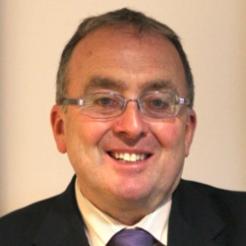Men are still more than twice as likely as women to hold the top job at the UK’s largest charities, a situation which has resulted in the gender pay gap widening even further, Acevo’s latest Pay Survey suggests.
The proportion of female CEOs is largely unchanged from last year at 45 per cent of respondents, but the average pay gap has widened to 18.6 per cent of the median male CEO salary. The median pay of male CEOs is £67,000, compared with £54,530 for women - the biggest discrepancy since at least 2008.
Acevo attributes the pay gap largely to the fact that women tend to lead smaller organisations, while those in charge of charities with income of £5m or more are more than twice as likely to be male.
The results – which are based on responses from 325 men and 271 women (82 participants did not answer the gender question) - also suggest that male pay has risen since last year, while female pay has remained static.
Overall, half of respondents had a pay rise in the last year, but more than a third do not even have a regular pay review.
The median basic salary of the CEOs that took part is £60,000, up 3.2 per cent on last year and a return to 2011 levels. Acevo CEO Sir Stephen Bubb (pictured) said the results demonstrate, once again, “the restrained approach taken by charity leaders on this issue…the rate of increase is lower than the rate of inflation over the same period.”
The median salary of a chief executive leading a charity with more than 1,000 employees – which comprised 1 per cent of the participants – was £105,000.
London CEOs earn the most, at £70,000 median salary, while those in Scotland and Northern Ireland earn the least (£45,401 and £47,283 respectively).
In terms of the organisation’s causal activity, median pay is highest among those leading sport and recreation bodies – possibly the result of an Olympic year uplift, Acevo suggests.
Acevo also asked respondents some questions on pay transparency. In 2011, 55 per cent agreed that there should be more transparency about CEO salaries. In 2012, this had dropped slightly to 50 per cent. This year, just 38 per cent agreed with this suggestion, but almost 30 per cent agreed with a newly-added statement that they “feel they are already transparent”.
At the same time, the proportion that answered ‘no’ to the question of whether there should be more transparency about CEO salaries, fell from nearly 19 per cent in 2012, to just 9.9 per cent.
Diversity
The ethnic diversity of those leading Acevo member charities is not improving – in fact it is getting worse. Some 97 per cent of respondent CEOs are white – more than in either 2012 or 2011.
Some 69 per cent of chairs are male and just over three-quarters are aged 55 and over.










